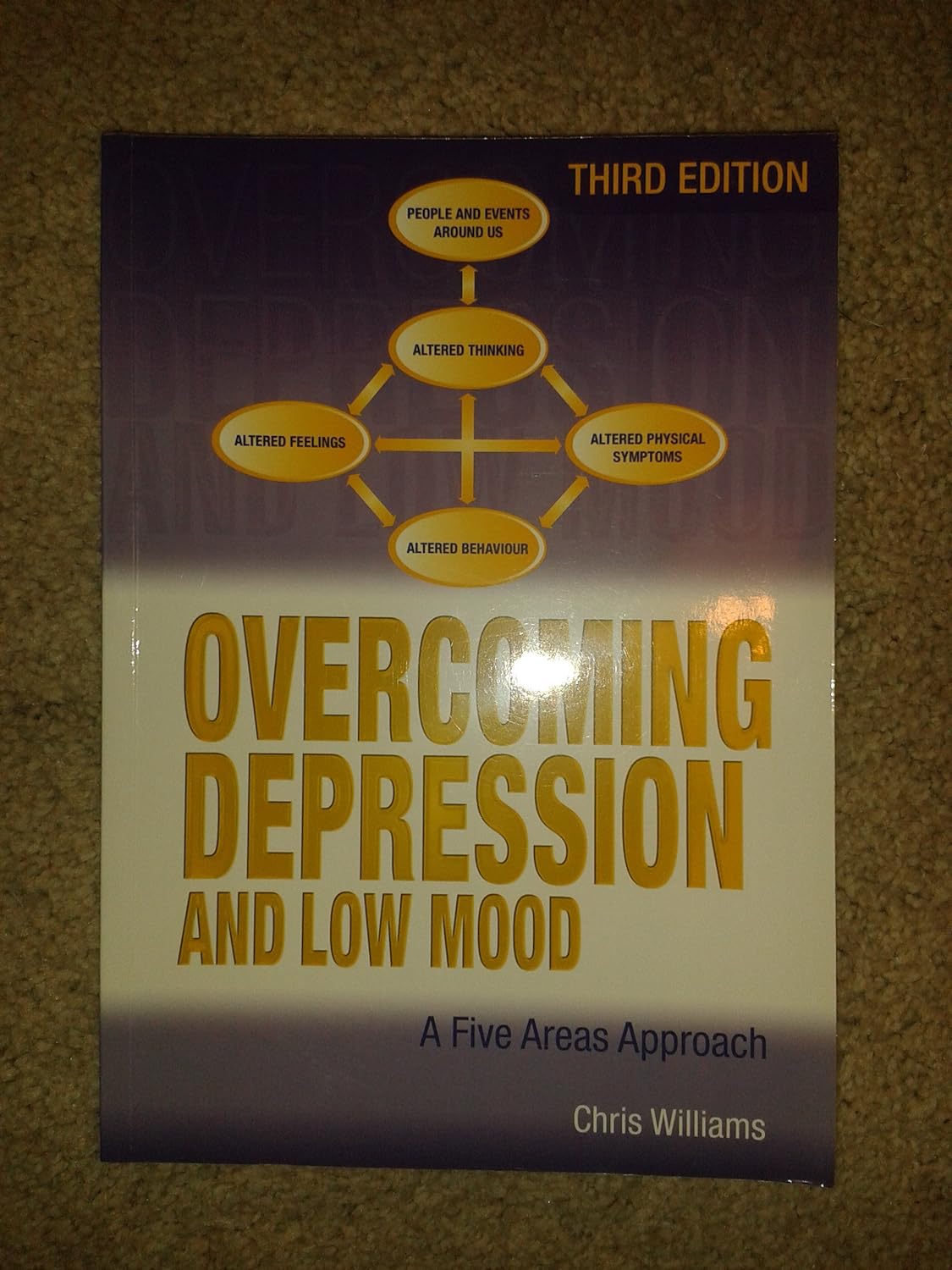
Overcoming depression and low mood (3rd edition)
Modular self-help course teaching cognitive behavioral therapy (CBT) based life skills that address all the key symptoms seen in depression and low mood. Users complete the initial self-assessment chapters that help them identify the problems they face, and then choose to work on focused workbooks that address their altered thinking and behavior. With chapters addressing overcoming unhelpful thinking, behavioral activation, improving sleep, medication adherence, problem solving and relapse prevention, the book has been widely adopted in low intensity settings, including in the Bounceback BC program in BC Canada, across the UK and elsewhere. The book can be freely copied for use in your personal life and face to face individual therapy practice as a therapist.
Editorial Reviews
Written by a widely respected trainer, teacher, researcher and Past-President of the British Association for Behavioral and Cognitive Psychotherapies (www.babcp.com- the lead organization for CBT in the UK). Widely used best selling book that uses a user-friendly form of CBT to teach readers practical and achievable CBT-based self-help skills. By completing their own systematic assessment of the impact of their low mood on five key areas of their life (people and events around you, altered thinking, feelings, physical symptoms and behavior), the reader is empowered to make changes in areas of life they identify themselves as having problems in. The approach, now supported by four published RCTs, is one of the most used and accessible self-help available. Published readability statistics confirm how accessible and usable the resources are. Outcomes are maximised by allowing the reader to focus on problems they choose. With support and encouragement from a supportive practitioner, or when used alone, the self-help format helps reliably deliver the CBT model in a modular way that maintains fidelity to the CBT model. The book is accompanied by a popular (3.5 million hits a month) and free life skills website at www.llttf.comAbout the Author(s)
Christopher Williams
Dr Chris Williams is Professor of Psychosocial Psychiatry and Honorary Consultant Psychiatrist at the University of Glasgow, Scotland, UK. His main clinical and research interest is in the development and evaluation of self-help approaches that provide wider access to cognitive...
Read MoreBack
